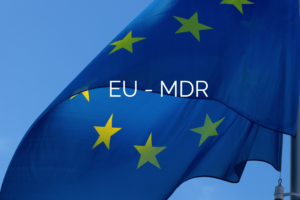Request a demo specialized to your need.

The European Union (EU) Clinical Trial Regulation (CTR) No 536/2014, which came into effect in January 2022, has significantly changed the clinical trial landscape in the EU. It streamlines and harmonizes the clinical trial application process while maintaining high standards of patient safety and data quality. This blog post outlines 10 key aspects of the new regulation that sponsors should be aware of when planning and conducting clinical trials in the EU.
- Centralized EU Clinical Trial Portal and Database: The new regulation introduces a centralized EU Clinical Trial Portal and Database to simplify the application and review process. Sponsors can now submit a single application for multi-center trials across multiple EU member states, while the database provides public access to key trial information, increasing transparency in clinical research.
- Single Application Process and Harmonized Assessment: Sponsors now submit a single application through the EU Clinical Trial Portal, which is shared with all concerned member states. The assessment is divided into two parts: Part I, a joint assessment by all concerned member states, focusing on scientific aspects, and Part II, a separate assessment by each concerned member state, addressing national aspects.
- Standardized Timelines: The new regulation establishes standardized assessment timelines, providing greater predictability for sponsors. For Part I, the assessment must be completed within 45 days (or 66 days if additional information is requested), while for Part II, the assessment must be completed within 30 days (or 45 days if additional information is requested).
- Risk-Proportionate Approach: The CTR adopts a risk-based approach, tailoring regulatory requirements based on the level of risk posed by the trial to the participants. Trials with lower risk may be subject to less stringent requirements, reducing the regulatory burden and encouraging innovation.
- Increased Transparency and Public Access to Information: The regulation mandates the publication of a summary of clinical trial results in the EU Clinical Trial Database within 12 months of trial completion, regardless of the outcome. This enhances transparency, reduces publication bias, and promotes data sharing among researchers.
- Strengthened Patient Protection: The CTR emphasizes patient safety with provisions for increased informed consent, protection of vulnerable populations, and strengthened safety reporting requirements. Sponsors must ensure that these measures are incorporated into their clinical trial protocols and processes.
- Compliance with GDPR and Data Protection Requirements: Sponsors must ensure that their clinical trials comply with the General Data Protection Regulation (GDPR) and other relevant data protection laws, including data anonymization, encryption, and secure data storage and transfer.
- Adaptation to the New Regulatory Landscape: Sponsors must adapt to the new regulatory landscape by updating their processes, systems, and documentation to comply with the CTR’s requirements. This may involve liaising with regulatory authorities, engaging with ethics committees, and collaborating with investigators and other stakeholders.
- Collaboration with Clinical Trial Management Solution Providers: Working with clinical trial management solution providers that have updated their software and systems to align with the CTR’s requirements can help sponsors navigate the new regulatory environment more efficiently.
- Continuous Monitoring of Regulatory Changes: Sponsors should stay informed about updates, amendments, or clarifications related to the EU Clinical Trial Regulation to ensure ongoing compliance and adapt their processes accordingly.
The new EU Clinical Trial Regulation aims to create a more efficient and harmonized clinical trial environment within the EU. By understanding the key aspects of the regulation and adapting their processes accordingly, sponsors can ensure the highest standards of quality and safety in their clinical trials, benefiting patients and fostering the development of new therapies.
Cloudbyz Unified Clinical Trial Management (CTMS) is a comprehensive, integrated solution to streamline clinical trial operations. Built on the Salesforce cloud platform, our CTMS provides real-time visibility and analytics across study planning, budgeting, start-up, study management, and close-out. Cloudbyz CTMS can help you achieve greater efficiency, compliance, and quality in your clinical operations with features like automated workflows, centralized data management, and seamless collaboration. Contact us today to learn how Cloudbyz CTMS can help your organization optimize its clinical trial management processes.
To know more about the Cloudbyz Unified Clinical Trial Management Solution contact info@cloudbyz.com
Subscribe to our Newsletter

